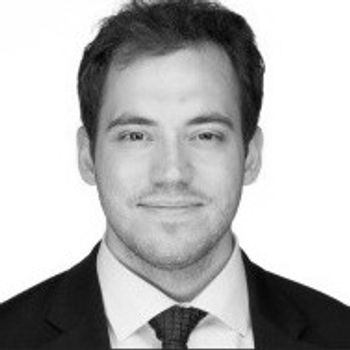70 percent of faculty cannot speak freely about Israeli-Palestinian conflict, new report claims
The Israeli-Palestinian conflict consistently rated as a hard issue on many campuses.
FIRE concludes that ‘[a] climate of this type is not sustainable for higher education, at least not if higher education desires to uphold its truthseeking and knowledge-producing mission.’
A new report from the Foundation for Individual Rights and Expression (FIRE) reveals how many professors feel pressure against speaking openly about the Israeli-Palestinian conflict.
The report, titled “Silence in the Classroom,” was released on Thursday morning, and found that 70 percent of faculty members surveyed “say they have difficulty talking openly and honestly about this topic on their campus — and this approached 90% on campuses such as Columbia, Stanford, and Rutgers.”
Professors in more than 40 colleges and universities listed the Israeli-Palestinian conflict as the top “difficult issue to discuss” at their school. Eighty percent or more of professors listed the topic in the first place at the Universities of Brown, Columbia, Harvard, Indiana-Bloomington, Rutgers, Stanford, Syracuse, Oregon, and Yale.
Other controversial topics were “Racial inequality,” “transgender rights,” “affirmative action,” and “the presidential election.”
Key findings include that “35% of faculty say they recently toned down their writing for fear of controversy,” more than one in ten faced some type of “discipline or threats of discipline” for their work or for things they said and wrote in their unofficial capacity, more than a quarter said they “feel unable to speak freely for fear of how students, administrators, or other faculty would respond,” and almost a quarter said they fear getting fired because “someone misunderstands something they have said or done.”
Half of all faculty also expressed their opposition to universities forcing applicants to faculty positions to write statements of support for Diversity, Equity, and Inclusion.
[RELATED: Conservative students feel silenced at UPitt, report finds]
Though FIRE surveyed professors from across the political spectrum, conservatives were more often the ones who felt the greatest pressure.
More than 50 percent of conservatives were worried about being slandered and attacked over a misunderstanding, 32 percent were worried about getting fired for the same reason, and 55 percent would “at least occasionally hide their political beliefs from other faculty in an attempt to keep their jobs.”
FIRE concludes that “[a] climate of this type is not sustainable for higher education, at least not if higher education desires to uphold its truthseeking and knowledge-producing mission.”
A FIRE spokesperson referred Campus Reform to the organization’s press release announcing the report, in which FIRE’s Manager of Polling and Analytics Nathan Honeycutt said: “The McCarthy era is considered a low point in the history of American academic freedom with witchhunts, loyalty tests, and blacklisting in universities across the country. That today’s scholars feel less free to speak their minds than in the 1950s is a blistering indictment of the current state of academic freedom and discourse.”
Honeycutt also said: “There are very few conservative faculty. If they’re not expressing their views, then students are even less exposed to conservative perspectives than one might expect based on the numbers.”

